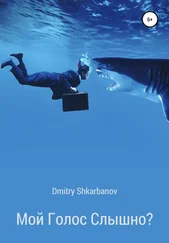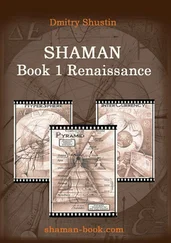‘Who’s coming back?’ Istomin repeated mechanically into the receiver.
‘The brigadier and Homer,’ the receiver crackled. ‘Ahmed was killed.’
Vladimir Ivanovich blotted his bald patch with his handkerchief and wiped his temple under the rubber strap of his piratical eye patch. Reporting soldiers’ deaths to relatives was one of his responsibilities. Without waiting for the operator to switch the line, he stuck his head out of the door and shouted to his adjutant:
‘Bring both of them to me! And tell the orderlies to set the table!’
He walked across his office, straightened the photos hanging on the wall, whispered something in front of the map and turned to Denis Mikhailovich, who was sitting there with his arms crossed, blatantly grinning.
‘Volodya, you’re just like some girl before a date,’ the colonel chuckled.
‘I see you’re excited too,’ the station commandant snapped back, nodding at the colonel’s wet trousers.
‘Why should I worry? I’ve got everything ready. Two assault units assembled, they can be mobilised in twenty-four hours.’ Denis Mikhailovich lovingly stroked the light-blue beret lying on the desk, then picked it up and stuck it on his head to make himself look more official.
In the reception office, feet started scurrying about, knives and forks jangled, and an orderly held up a dewy bottle of spirits through the crack of the door. Istomin waved him away – later, all of that later! Then at last he heard a familiar booming voice, the door flew open and the opening was filled by a broad, massive figure. Hovering behind the brigadier’s back was that old storyteller he’d dragged along with him for some reason.
‘Welcome back!’ said Istomin, sitting down in his chair, then getting up and sitting down again.
‘What’s out there?’ snapped the colonel.
The brigadier shifted his dark, heavy gaze from one man to the other and spoke to the station commandant.
‘Tula’s been occupied by nomads. They’ve slaughtered everyone.’
‘All our men too?’ asked Denis Mikhailovich, raising his shaggy eyebrows.
‘As far as I can tell. We got as far as the entrance of the station, there was a fight, and they sealed it off.’
‘They closed the hermetic door?’ said Istomin, half-rising out of his chair and clutching the edge of the desk with his fingers. ‘So now what do we do?’
‘Storm them,’ the brigadier and the colonel rasped simultaneously.
‘We can’t storm them!’ Homer suddenly chimed in from the reception office.
She simply had to wait for the agreed time. If she hadn’t got the day wrong, the trolley should appear out of the damp darkness of the night very soon now. Every additional minute spent here on the edge of the cliff, where the tunnel emerged from the thickness of the earth like a vein from a slashed wrist, cost her a year of her life. But the only choice she had now was to wait. At the other end of the interminably long bridge she would run into a locked hermetic door that was only unlocked from the inside – once a week, for market day.
Today Sasha had nothing to sell, and she needed to buy much more than ever before. But she couldn’t care less now what the men on the trolley might ask for in exchange for letting her back into the land of the living. Her father’s chilly indifference in death had been communicated to her.
Sasha used to dream so much about going to another station some day with her father, to a place where they could be surrounded by people, where she could make friends with someone, meet someone special… . She used to ask her father about his young days, not just because she wanted to revisit her own bright childhood, but because she was secretly setting herself, as she was now, in her mother’s place, setting some nebulously handsome man with shifting features in her father’s place and awkwardly imagining love to herself. She worried that she wouldn’t be able to find any common ground with other people if they really went back to the Greater Metro. What would they have to talk to her about?
But now there were only hours, or perhaps minutes, left to go until the ferry arrived, and she couldn’t give a damn for the other people – the women or the men – and even the thought of returning to a human existence seemed like a betrayal of her father. She would have agreed to spend the rest of her life at their station, without hesitating for a single moment, if that could have helped to save him.
The candle stub in the glass jar fluttered in its death agony and she transferred the flame to a new wick. On one of his trips to the surface her father had found an entire crate of wax candles, and Sasha always carried several of them in the pockets of her overalls. She would have liked to think their bodies were like candles, and a little particle of her father had been transferred to her after his light was extinguished.
Would the men on the trolley see her signal in the mist? Before this she had always guessed the time right, so she never had to waste an extra moment lingering outside. He father forbade her do that, and the swollen goitre on his throat was enough of a warning in itself. At the cliff edge Sasha usually felt as agitated as a trapped shrew, gazing around anxiously and only occasionally daring to go as far as the first span of the bridge, in order to look down from it at the black river flowing past below.
But she had too much time. Huddling up and shuddering in the damp, chilly autumn wind, Sasha took several steps forward, and the crumbling summits of high-rise apartment blocks appeared behind the gaunt trees. Something huge splashed in the oily, viscous river, and in the distance unknown monsters groaned in almost human voices.
Then suddenly their wailing was joined by a plaintive, dismal creaking.
Sasha jumped to her feet, raising her lamp high in the air, and they answered from the bridge with a stealthy, slippery beam of light. A decrepit old trolley was moving towards her, barely able to force its way through the dense white gloom, thrusting the wedge of its feeble headlamp into the night and prising its way through. The girl backed away: it wasn’t the usual trolley. It strained its way along jerkily, as if every turn of its wheels cost the man working the levers a great effort.
Eventually it shuddered to a halt about ten steps away from Sasha and a tall, fat man wrapped in tarpaulin jumped down off the frame onto the stone chips. Demonic spots of reflected light danced in the lenses of his gas mask, concealing his eyes from Sasha. In one hand the man was clutching an ancient army Kalashnikov with a wooden butt.
‘I want to leave here,’ Sasha declared, thrusting out her chin.
‘Lea-eave,’ the tarpaulin scarecrow echoed, drawling the sound in either surprise or mockery. ‘And what have you got to sell?’
‘I haven’t got anything left,’ she said, staring hard into those blazing eye sockets bound in iron.
‘Everyone has something that can be taken, especially a woman,’ the ferryman grunted, then he had a thought. ‘Are you going to leave your daddy then?’
‘I haven’t got anything left,’ Sasha repeated, lowering her eyes.
‘So he croaked after all,’ said the mask, sounding relieved, but also disappointed. ‘And he did right. Or he’d have been upset now.’ The barrel of the automatic caught the shoulder strap of Sasha’s overalls and slowly dragged it downwards.
‘Don’t you dare,’ she shouted hoarsely, jerking back.
The jar with the candle fell, shattering on a rail, and the darkness instantly licked out the flame.
‘No one comes back from here, can’t you understand that?’ The scarecrow gazed at her indifferently with its blank, dead lenses. ‘Your body won’t even be enough to cover the cost of my journey in one direction. Let’s say I accept it in payment of your father’s debt.’
Читать дальше











